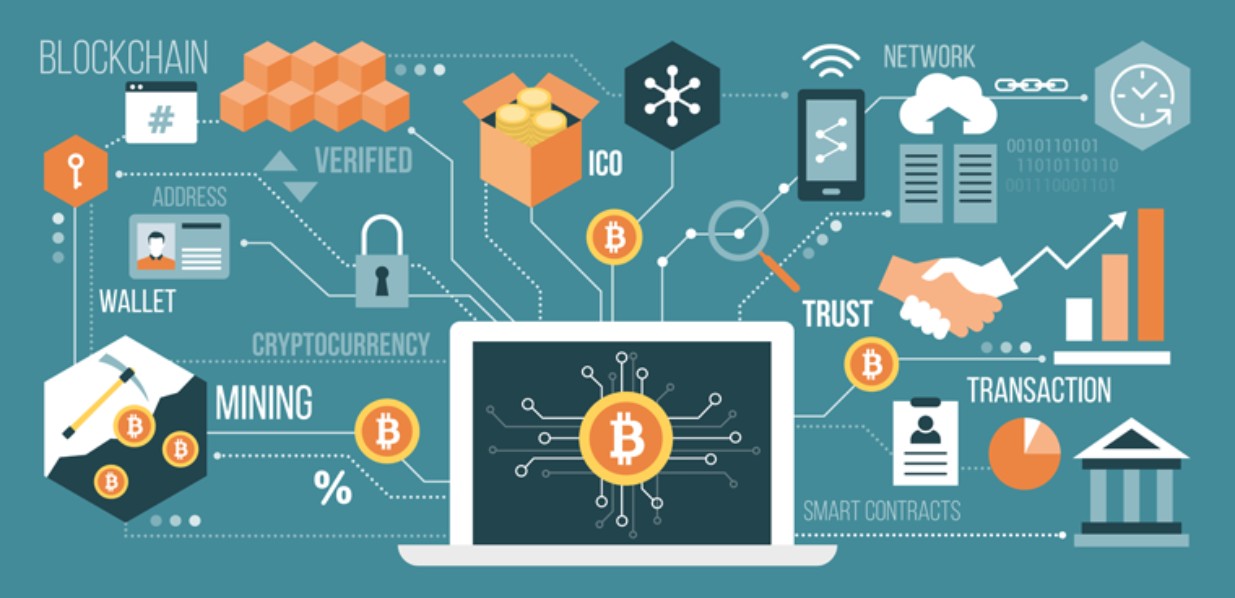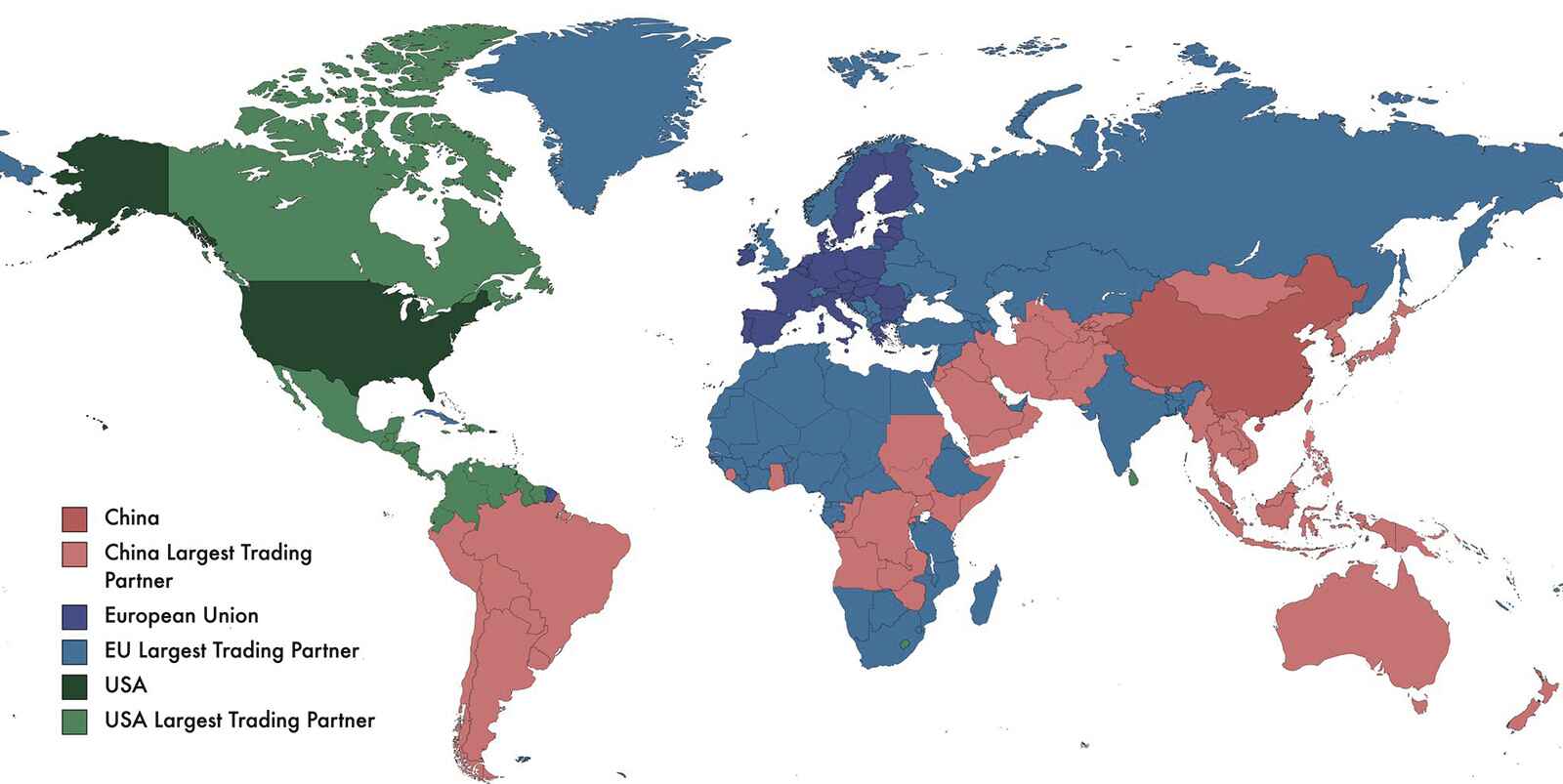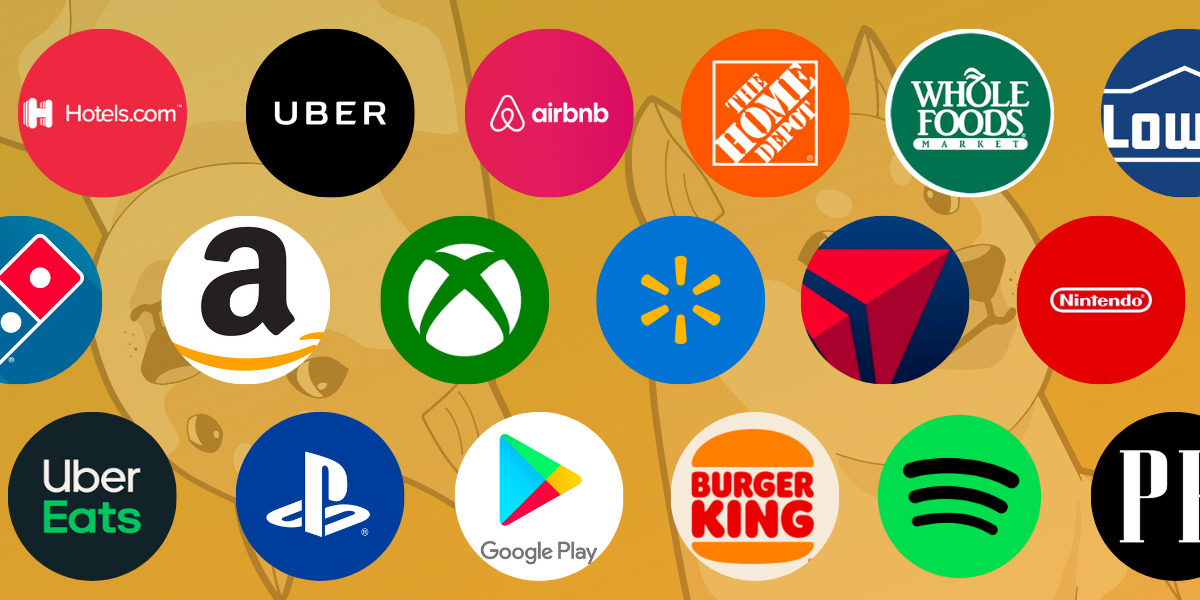Introduction
Welcome to the dynamic world of Fintech products! In today’s fast-paced digital era, financial technology, or Fintech, has emerged as a powerful force transforming the way we manage our finances, make payments, and access financial services. Fintech products are revolutionizing the traditional financial landscape by leveraging technology to provide innovative and convenient solutions to consumers and businesses alike.
Fintech encompasses a wide range of products and services, including mobile banking apps, payment platforms, robo-advisors, peer-to-peer lending platforms, and cryptocurrency wallets, to name just a few. These products have gained popularity due to their ability to streamline and automate financial processes, increase accessibility, and offer personalized experiences tailored to individual needs.
The rise of Fintech can be attributed to various factors. Firstly, advancements in technology have paved the way for more efficient and secure financial transactions, making it easier for individuals and businesses to manage their finances on the go. Additionally, changing customer expectations and demands for seamless and user-friendly experiences have pushed traditional financial institutions to adapt or risk becoming obsolete.
As Fintech products continue to evolve and disrupt the financial industry, it is important to understand the different types of products available and the benefits they offer. Whether you’re a consumer looking for a convenient way to track your expenses, a small business owner in need of quick and efficient payment solutions, or an investor seeking automated wealth management, there is a Fintech product out there to cater to your specific needs.
However, with the rapid pace of innovation, there are also challenges associated with Fintech product development. Ensuring data security and privacy, navigating regulatory frameworks, and building trust among consumers are some of the hurdles that Fintech companies face. Despite these challenges, the potential for Fintech products to revolutionize the financial industry and empower individuals and businesses cannot be ignored.
In this article, we will explore the fascinating world of Fintech products in more detail. We will delve into the various types of Fintech products, highlight their benefits, discuss the challenges faced during their development, and provide real-life examples of successful Fintech products in action. So, fasten your seatbelts and get ready to embark on an exciting journey through the realm of Fintech!
What is Fintech?
Before diving into the world of Fintech products, it is crucial to gain a clear understanding of what Fintech actually means. Fintech is a broad term that refers to the use of technology to enhance and optimize financial activities and services. It encompasses a wide range of innovative solutions that leverage cutting-edge technologies such as artificial intelligence, blockchain, mobile applications, and cloud computing.
In simple terms, Fintech is the intersection between finance and technology. It involves the development and implementation of digital tools and platforms that allow individuals and businesses to manage their money, access financial services, and make transactions more efficiently and conveniently.
Fintech products can be found in various sectors of the financial industry, including banking, lending, payments, insurance, wealth management, and more. These products aim to disrupt traditional financial processes, making them faster, more secure, and more accessible to a wider audience.
One of the key aspects of Fintech is its focus on user experience. Fintech products are designed with the end-user in mind, aiming to simplify complex financial tasks and provide intuitive interfaces that anyone can use, regardless of their financial literacy level.
Moreover, Fintech products often leverage data analytics to provide personalized recommendations and insights. By analyzing user data, these products can offer tailored solutions that meet individual needs and preferences, ultimately enhancing the overall customer experience.
Fintech has also opened doors for financial inclusion, allowing underserved populations to access vital financial services. In developing countries where traditional banking infrastructure may be limited, mobile payment solutions and digital wallets offered by Fintech companies have provided a means for individuals to send and receive money, save, and access credit.
Overall, Fintech represents a disruptive force in the financial industry, challenging traditional institutions and redefining the way we think about money and financial services. As technology continues to advance, Fintech is expected to bring even more innovative solutions to the market, transforming the financial landscape as we know it.
In the following sections, we will explore different types of Fintech products in detail, highlighting their features, benefits, and real-life examples. So, buckle up as we prepare to explore the exciting world of Fintech and discover how these products are reshaping the way we interact with our finances.
Evolution of Fintech Products
The evolution of Fintech products can be traced back to the late 20th century when the financial industry started harnessing the power of technology to streamline operations and improve efficiency. The emergence of the internet and the subsequent development of online banking marked the initial phase of Fintech innovation.
In the early stages, Fintech primarily focused on automating back-office processes and improving the speed and accuracy of financial transactions. Online banking platforms allowed customers to check their account balances, transfer funds, and pay bills conveniently from their computers.
As technology advanced and smartphones became ubiquitous, Fintech products expanded their reach and functionality. Mobile banking apps emerged, enabling users to carry out financial transactions on-the-go, anytime and anywhere. These apps provided a seamless user experience, offering features like mobile check deposits, person-to-person payments, and real-time notifications.
Rapid advancements in data analytics and artificial intelligence also played a significant role in the evolution of Fintech products. Robo-advisors entered the scene, leveraging algorithms and machine learning to provide automated investment advice based on individual risk profiles and financial goals.
The rise of peer-to-peer lending platforms marked another significant milestone in Fintech. These platforms allowed individuals and small businesses to bypass traditional lenders and connect directly with lenders, often at lower interest rates. Peer-to-peer lending democratized the lending industry and provided alternative financing options to borrowers.
Blockchain technology and cryptocurrencies, such as Bitcoin, introduced a new era of decentralization and security in financial transactions. Blockchain eliminated the need for intermediaries in peer-to-peer transactions, increasing transparency and reducing costs. Cryptocurrencies offered faster and cheaper cross-border payments, challenging the traditional remittance industry.
Today, Fintech products continue to evolve and disrupt various sectors of the financial industry. Open banking initiatives are gaining traction, allowing customers to share their financial data securely with multiple service providers, creating a more integrated and personalized financial ecosystem.
We are also witnessing the rise of Insurtech – Fintech solutions focused on revolutionizing the insurance industry. Insurtech products leverage data analytics and AI to create personalized insurance offerings, simplify claims processes, and enhance customer experience.
Looking ahead, the future of Fintech products is expected to be shaped by even more advanced technologies such as machine learning, big data, and the Internet of Things (IoT). These technologies will drive further innovation in areas like fraud prevention, risk assessment, and customer engagement.
In the following sections, we will explore the different types of Fintech products in detail, providing insights into their features, benefits, and their significant impact on the financial industry.
Types of Fintech Products
Fintech products encompass a wide range of solutions that cater to the diverse needs of individuals, businesses, and the financial industry as a whole. These products leverage technology to provide innovative and convenient ways to manage finances, make payments, access financial services, and much more. Let’s explore some of the main types of Fintech products:
1. Mobile Banking Apps
Mobile banking apps have become an integral part of our lives, allowing users to perform various banking activities on their smartphones or tablets. These apps provide features such as checking account balances, transferring funds, paying bills, applying for loans, and even tracking spending habits. Mobile banking apps offer convenience, accessibility, and enhanced security compared to traditional brick-and-mortar banking.
2. Payment Platforms
Fintech payment platforms, like PayPal and Square, have revolutionized the way we make transactions. These platforms enable users to make online payments, transfer money between individuals, and even accept credit card payments. They offer fast, secure, and convenient alternatives to traditional payment methods, reducing the reliance on cash and checks.
3. Robo-advisors
Robo-advisors are digital platforms that provide automated investment advice and portfolio management based on algorithms and machine learning. These platforms assess the user’s risk tolerance, investment goals, and time horizon to create a personalized investment strategy. Robo-advisors enable individuals to access investment services that were previously only available to high-net-worth individuals, at a fraction of the cost.
4. Peer-to-Peer Lending Platforms
Peer-to-peer lending platforms connect borrowers directly with lenders, allowing individuals and small businesses to access loans without involving traditional financial institutions. These platforms facilitate crowdfunding and offer competitive interest rates, providing alternative financing options to borrowers while offering attractive returns to lenders.
5. Cryptocurrency and Blockchain Solutions
Cryptocurrency and blockchain technologies have introduced decentralized, secure, and transparent systems for financial transactions. Blockchain eliminates the need for intermediaries in peer-to-peer transactions, improving efficiency, reducing costs, and increasing trust. Cryptocurrencies like Bitcoin and Ethereum offer digital currencies that can be used for online transactions and investment purposes.
6. Insurtech Solutions
Insurtech is transforming the insurance industry by leveraging technology to streamline processes and enhance customer experience. Insurtech solutions include digital insurance platforms, usage-based insurance, and AI-driven claims management systems. These innovations provide individuals and businesses with more accessible, personalized, and efficient insurance options.
7. Wealth Management Platforms
Wealth management platforms combine technology and financial expertise to offer comprehensive and automated investment services. These platforms provide portfolio analysis, goal setting, risk assessment, and asset allocation, allowing individuals to manage their investments efficiently. Wealth management platforms cater to both individual investors and financial advisors, offering a more streamlined and cost-effective approach to wealth management.
These are just a few examples of the diverse range of Fintech products available in the market. From personal finance management to lending, payments, investments, and insurance, Fintech products continue to disrupt and innovate traditional financial processes, providing individuals and businesses with greater control over their financial lives.
In the next sections, we will explore the benefits of using Fintech products and discuss the challenges faced by Fintech companies in developing these innovative solutions.
Benefits of Fintech Products
Fintech products offer numerous benefits that have transformed the way individuals and businesses interact with their finances. These innovative solutions leverage technology to enhance convenience, accessibility, efficiency, and security. Let’s explore some of the key benefits of using Fintech products:
1. Convenience and Accessibility
Fintech products have made financial services more accessible than ever before. With mobile banking apps and online platforms, users can manage their finances anytime, anywhere, simply using their smartphones or computers. This convenience eliminates the need for physical visits to banks or financial institutions, saving time and effort.
2. Streamlined Financial Processes
Fintech products automate and streamline financial processes, reducing manual work and paperwork. Whether it’s processing payments, applying for loans, or managing investments, these products offer quick and efficient solutions that enhance productivity and save valuable time.
3. Cost-Effectiveness
Fintech products often provide cost-effective alternatives to traditional financial services. For example, peer-to-peer lending platforms can offer lower interest rates compared to traditional banks, while Robo-advisors charge lower fees for investment services compared to human financial advisors. These cost-effective options open doors for individuals and businesses with smaller budgets to access vital financial services.
4. Personalized Financial Solutions
Fintech products leverage data analytics and AI algorithms to offer personalized financial solutions tailored to individual needs. These products analyze user data to provide customized investment recommendations, personalized insurance options, and targeted financial advice. This personalization helps individuals make more informed financial decisions and achieve their specific goals.
5. Enhanced Security
Fintech companies prioritize data security and privacy, implementing robust encryption and authentication measures to protect user information. Additionally, technologies like blockchain offer enhanced security for financial transactions, reducing the risk of fraud and unauthorized access. These security measures instill trust and confidence in users, making Fintech products a reliable and secure option for managing finances.
6. Financial Inclusion
Fintech products have contributed to financial inclusion by reaching previously underserved populations. In regions with limited access to traditional banking services, mobile payment solutions and digital wallets offered by Fintech companies have provided individuals with a means to securely save, send and receive money, and access credit. This inclusion empowers individuals and stimulates economic growth in underserved communities.
7. Innovation and Disruption
Fintech products drive innovation and disrupt traditional financial models. They challenge established institutions and practices, pushing the industry to adapt and evolve. This competition and innovation benefit consumers by offering better services, improved user experiences, and more affordable financial options.
The benefits offered by Fintech products have revolutionized the financial industry, making it more user-friendly, accessible, and efficient. As technology continues to advance, we can expect even more innovative solutions from the Fintech sector, transforming the way we manage and interact with our finances.
Next, we will explore the challenges faced by Fintech companies in the development and implementation of these innovative products.
Challenges in Fintech Product Development
While Fintech products have revolutionized the financial industry, there are various challenges that Fintech companies face during their development and implementation. These challenges can stem from regulatory frameworks, cybersecurity concerns, customer trust, and scalability. Let’s explore some of the key challenges in Fintech product development:
1. Regulatory Compliance
Fintech companies must navigate complex regulatory frameworks, as financial services are heavily regulated in most jurisdictions. Compliance with regulations such as data privacy, anti-money laundering (AML), know your customer (KYC), and consumer protection laws is crucial to ensure legal operations. Staying abreast of evolving regulations and maintaining compliance can be challenging for Fintech companies, especially as regulations differ across countries and regions.
2. Cybersecurity and Data Privacy
Fintech products deal with sensitive financial information, making cybersecurity a top concern. Protecting user data from cyber threats and maintaining robust data privacy measures is essential. The risk of data breaches, identity theft, and unauthorized access poses significant challenges for Fintech companies. High-security standards, encryption technologies, and proper data handling protocols are essential to mitigate these risks and build customer trust.
3. Building Customer Trust
Building trust is vital for the success of Fintech products, as users must feel confident in the security and reliability of the services provided. Establishing trust with customers who are accustomed to traditional banking institutions can be challenging. Clear and transparent communication about security measures, regulatory compliance, and data privacy policies is necessary to gain and maintain customer trust.
4. Scalability and Integration
Fintech companies often face scalability challenges as their user base grows rapidly. Managing increased transaction volumes, maintaining high system performance, and ensuring seamless integration with existing financial systems can be complex and resource-intensive. Fintech companies must design their products to handle scalability and be able to integrate with various platforms and APIs to provide a seamless user experience.
5. Access to Funding
Securing adequate funding is critical for Fintech companies to develop, market, and scale their products. However, accessing funding can be a challenge, especially for early-stage startups. Fintech companies often need to demonstrate their viability, growth potential, and regulatory compliance to attract investors and secure funding from venture capitalists or financial institutions.
6. Technological Infrastructure
Creating and maintaining a robust technological infrastructure is necessary for the smooth operation of Fintech products. Developing cutting-edge technologies and staying up to date with advancements in areas like artificial intelligence, data analytics, and blockchain technology requires skilled talent and significant investment. Ensuring the stability, reliability, and compatibility of the technological infrastructure poses ongoing challenges for Fintech companies.
Despite these challenges, Fintech companies continue to innovate and address the evolving needs of their users. By overcoming regulatory hurdles, prioritizing cybersecurity, building customer trust, focusing on scalability, securing funding, and investing in robust technological infrastructure, Fintech companies can navigate and conquer these challenges to deliver innovative and reliable solutions to consumers and businesses alike.
In the next section, we will explore real-life examples of successful Fintech products that have made a significant impact on the financial industry.
Examples of Fintech Products
Fintech has witnessed the development of numerous innovative and impactful products. These products have transformed the way we manage our finances, make payments, access loans, and invest. Let’s explore some notable examples of successful Fintech products:
1. Venmo
Venmo, a popular mobile payment app, simplifies the process of sending and receiving money between individuals. With Venmo, users can split bills, pay friends, and make secure transactions seamlessly. The app’s social feed feature and integration with social media platforms have made it a go-to option for convenient and social peer-to-peer payments.
2. Robinhood
Robinhood is an investment app that has revolutionized online trading. It offers commission-free trades and a user-friendly interface that makes investing accessible to everyday users. Robinhood’s simplicity and transparency have disrupted the brokerage industry, allowing a new generation of investors to participate in the stock market.
3. Stripe
Stripe is a payment processing platform that empowers businesses to accept online payments seamlessly. With a focus on simplicity and a robust set of features, Stripe has become a go-to choice for e-commerce businesses. It offers integrations with popular platforms and supports various payment methods, making it easy for businesses to accept payments from customers worldwide.
4. Betterment
Betterment is a Robo-advisor that provides automated and personalized investment advice. It uses algorithms to assess user goals, risk tolerance, and investment time horizon. Betterment then creates a diversified investment portfolio tailored to the individual’s needs. This platform eliminates the need for traditional, costly financial advisors, making investing in a diversified portfolio more accessible and affordable for all.
5. SoFi
SoFi, short for Social Finance, is a financial services company that offers a range of innovative products, including student loan refinancing, personal loans, mortgage loans, and investment options. Its user-friendly platform and competitive rates have made it a popular choice for individuals seeking simplified and flexible financial solutions.
6. Revolut
Revolut is a digital banking app that provides a range of financial services, including currency exchange, spending analysis, peer-to-peer payments, and budgeting tools. It offers multi-currency accounts with competitive rates for international transactions. Revolut’s app-based platform and comprehensive features have gained popularity among travelers and individuals seeking borderless banking solutions.
These are just a few examples of the many successful Fintech products that have disrupted traditional financial services. Each of these products demonstrates the power of technology and innovation in making financial processes more efficient, accessible, and user-friendly.
Fintech continues to thrive, with emerging solutions in areas like decentralized finance (DeFi), digital identity verification, and smart contracts. The ongoing evolution and development of Fintech products promise to reshape the financial industry and empower individuals and businesses around the world.
As we wrap up, we have explored the world of Fintech products, understanding what Fintech is, its evolution, types of products, benefits they offer, challenges faced in their development, and real-life examples of successful Fintech products. The future of Fintech holds exciting possibilities, as technology advancements continue to redefine the way we manage and interact with our finances.
Conclusion
Fintech products have revolutionized the financial industry, transforming the way we manage our finances, make payments, access loans, and invest. These innovative solutions leverage technology to enhance convenience, accessibility, efficiency, and security.
Throughout this article, we have explored the world of Fintech, understanding its definition, evolution, and the different types of Fintech products available. We have highlighted the benefits that Fintech products offer, including increased convenience, streamlined processes, personalized solutions, enhanced security, financial inclusion, and innovation.
However, the development of Fintech products is not without its challenges. Fintech companies must navigate complex regulatory landscapes, address cybersecurity concerns, build customer trust, ensure scalability and integration, access funding, and maintain a robust technological infrastructure.
Despite these challenges, Fintech has seen the emergence of successful products that have made a significant impact on the financial industry. From mobile payment apps like Venmo to investment platforms like Robinhood, these products have disrupted traditional practices, empowering individuals and businesses to take control of their finances.
The future of Fintech holds exciting possibilities. As technology continues to advance, we can expect even more innovative solutions that will further transform and shape the financial industry. Decentralized finance, digital identity verification, and smart contracts are just some areas where Fintech is making significant advancements.
In conclusion, Fintech products are reshaping the financial landscape, offering individuals and businesses efficient, convenient, and personalized financial solutions. As consumers and businesses continue to embrace these technologies, the impact of Fintech will only continue to grow, empowering people worldwide to take charge of their financial lives.
























